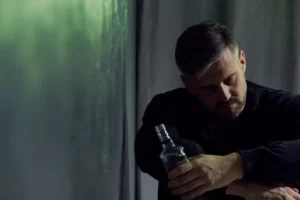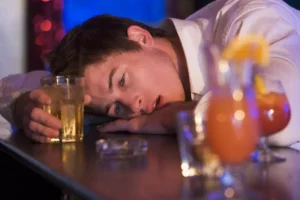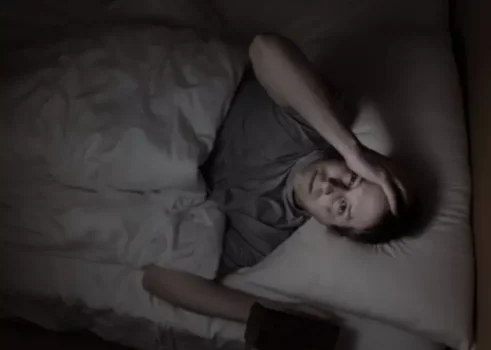Sobriety Strategies: 13 Tips for Staying Sober

I have always hated the feeling that I’m putting people out or being difficult. Some of your friends, or the ones who are threatened by your decision, will do things like pretend it’s not happening, pressure you to drink, question your choice, or say something like, “Oh, you’re still doing that not drinking thing? It’s seen as normal to drink, and quitting that drug can feel like breaking a social pact. So your bold, life-improving decision to not drink will mean changes almost everywhere you look. Here are some surprising (and not-so-surprising) occurrences that will inevitably happen to your relationships, your identity, even your free time, and how I’ve learned to deal with each one.
Thinking Clearly, Fewer Cravings
In addition to learning how to say no to alcohol in social settings, the recovery process typically requires looking inward. Exploring triggers will help break down the reasons you wanted to drink in the first place, making your recovery more sustainable. Working with a specialized therapist in alcohol therapy can be especially helpful for identifying triggers, working through past traumas, and developing a plan for when triggers do arise. It can make a significant difference to remove alcohol from your immediate environment as much as possible. If you have less accessibility to alcohol, you’ll have an easier time creating new lifestyle habits that don’t involve drinking. Conversely, the more readily available you can make replacement drinks (like building an alcohol-free cocktail bar), the more likely you are to choose these healthier alternatives.

Inquire About Medication
Ordering a cozy whiskey cocktail at my favorite local bar dulled the disappointment of every IVF failure. Others may have increased marital or relationship problems that are heading toward divorce or breakups. Maybe your work life has suffered, https://ecosoberhouse.com/ and your boss is tired of you calling in sick or coming in late. Perhaps your school performance has declined and you’re in danger of failing or you’ve been missing so many classes because you’ve been hungover that you can’t catch up.
- Most of those who experience severe alcohol withdrawal symptoms do so because they’re going through their detoxification period “on their own” without the benefit of medical help.
- A few have succeeded in moderating their drinking three, or four times in a row.
- Most people find mocktails a great alternative to their alcoholic predecessors.
- There’s no more not caring if they see your cellulite or whatever you’re hiding under there; and you will, once and for all, discover that sex is never like in the movies.
- By this time, people are often beginning to feel better and notice more energy.
Alcohol interferes with sleep
Detox occurs when the body goes through the process of eliminating substances from itself. Individuals who experience withdrawal symptoms have become dependant on the substance. This means that the brain and body have become so accustomed to having the substance present that without it, they can’t function properly. The brain and body need time to return to functioning without the substance. Medical support can help keep you safe and as comfortable as possible during the detox process. “Often I hear how much people’s relationship to alcohol changes at different stages in life,” said Skoulas, who has been sober for 12 years.
What Is Medication-Assisted Treatment (MAT)?
You must be ready to change in order to find the best treatment program for you. It will help prevent relapse once the formal treatment program ends. This guide includes the steps required to fully support the path and the journey to addiction recovery. My sadness would still be there, and even harder to process on poor sleep. By the time we saw our waiter again we had finished our meal, and my wave of wanting had passed. Skoulas says having a reliable circle of loved ones can make all the difference in staying sober.
- When recovering alcoholic starts drinking again, they may struggle to limit themselves to just a few drinks, putting their continuous sobriety and well-being at risk.
- But when you keep thinking about it, and start planning to do it, it’s time to get help.
- To justify drinking, people in recovery might pledge not to drink before a certain time of the day or on specific days of the week.
- As all these responses can attest, medication-assisted treatment is an effective alternative to traditional alcohol rehab for many people.
For a period it was, “I’m an alcoholic,” and that tended to silence anyone (for clarification, I no longer identify as an alcoholic). These days, unless I’m feeling generous, I simply say, “I don’t drink,” and leave it at that. If you’re continuing to suffer physical symptoms after two weeks of abstinence from alcohol, consult your healthcare provider. After two weeks of abstinence, the benefits of no longer drinking at harmful levels continue to become evident. These reduced cravings can help make it easier to stick to sobriety for the long-term.

Morning Anxiety: What It Is and How to Manage It
In addition to the physical barrier, there are immunological and chemical barriers on the luminal surface of the GI tract. The chemical barriers secreted by the epithelial/immune cells include secretory immunoglobulin A, mucins, and antimicrobial peptides, all of which are altered by alcohol metabolism. Any information published on this website or by this brand is not intended as a substitute for medical advice, and you should not take any action before consulting with a healthcare professional. In these drinking again after sobriety moments, I have to remind myself that recovery isn’t just about not drinking; it’s about remembering that I am first and foremost responsible for advocating for my own well-being and boundaries. While you may not wish for this scenario to happen, for there to not be attention drawn to you, or for you to potentially be seen as the difficult, high-maintenance sober chick, this is one of the best things that can happen! This is an opportunity to assert for your needs, and therefore assert your worth.
- Even one drink, the theory goes, and an alcoholic will spiral into a dangerous pattern of excessive alcohol consumption.
- It is tempting, especially after a period of sobriety, to think that you are suddenly cured.
- Especially after the pink cloud phase of recovery, it’s common to feel as though these emotions will never go away, and it’s common for any negative choices we’ve made during our using days to haunt us for a time.
- After two weeks of abstinence, the benefits of no longer drinking at harmful levels continue to become evident.
- “Shaking so bad I can hardly type, can barely stand up, can’t eat or sleep. Might be time for a trip to the ER.”
- Many alumni programs, such as those offered by American Addiction Centers (AAC), host peer gatherings and can connect you with addiction aftercare services.
- If you overload the liver, you have more of those toxins inside your body, which can damage the liver itself, your brain, your stomach, your heart and your pancreas.
Alcohol withdrawal symptoms begin to ease for some and just begin to get intense for others. Some have the same symptoms as on day one and ask, “How long does this last?” The urge to relieve those withdrawal symptoms with a drink can be overwhelming. “Most of my withdrawal symptoms are gone, but I still have sharp pains in my head, can’t sleep, and get night sweats.” “I am in my first hours of sobriety. I just took the quiz for withdrawal symptoms and scored 60% moderate to severe. Funny, because my average hangover is usually worse than this.” People can experience a wide range of symptoms—ranging from mild to moderate to severe—that start and stop at different times for each person.
What are the benefits of living a sober life?
Similarly, make sure your drinks are standard sizes (12 ounces of regular beer, 5 ounces of wine, or 1.5 ounces of distilled spirits). This is easier to do at home, but you can try communicating your needs to the bartender or waiter. We know the ups and downs can be confusing, and may cause you to question who you really are without alcohol.


